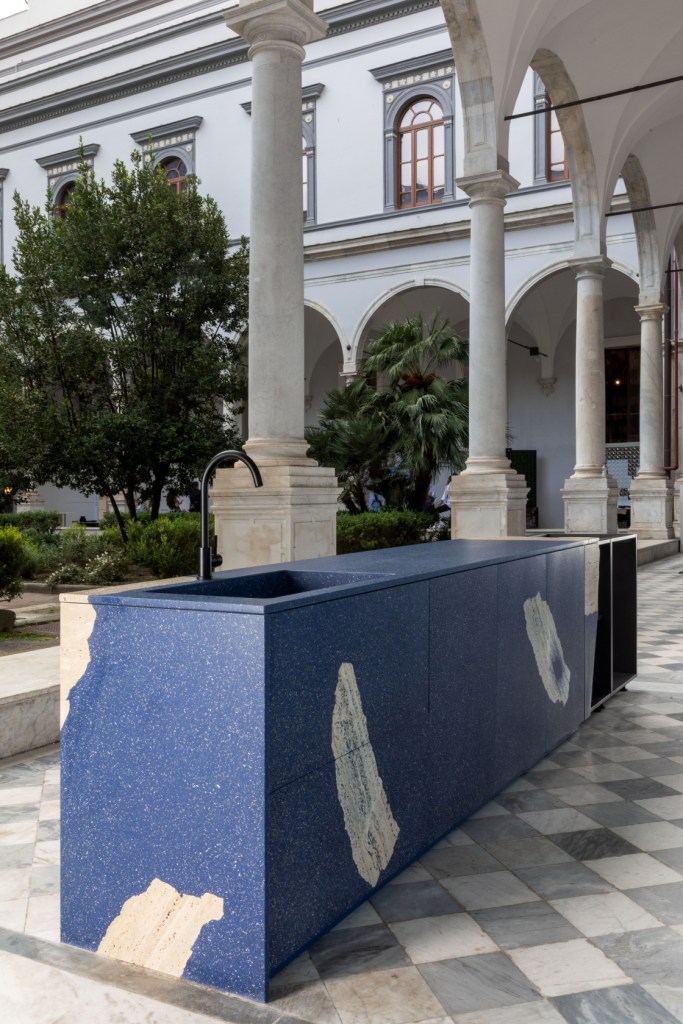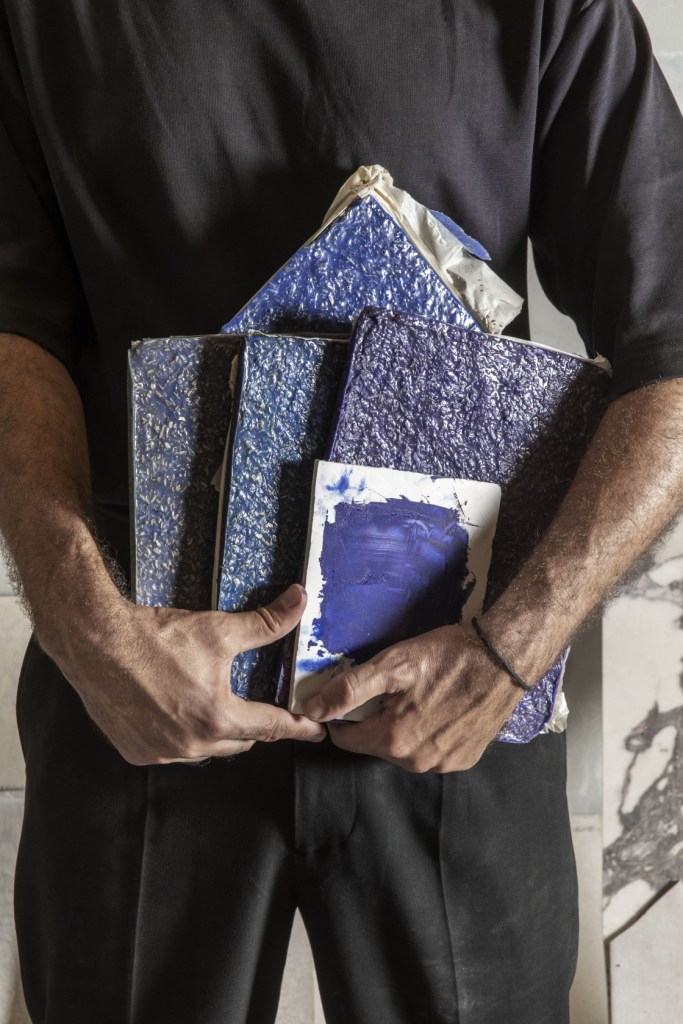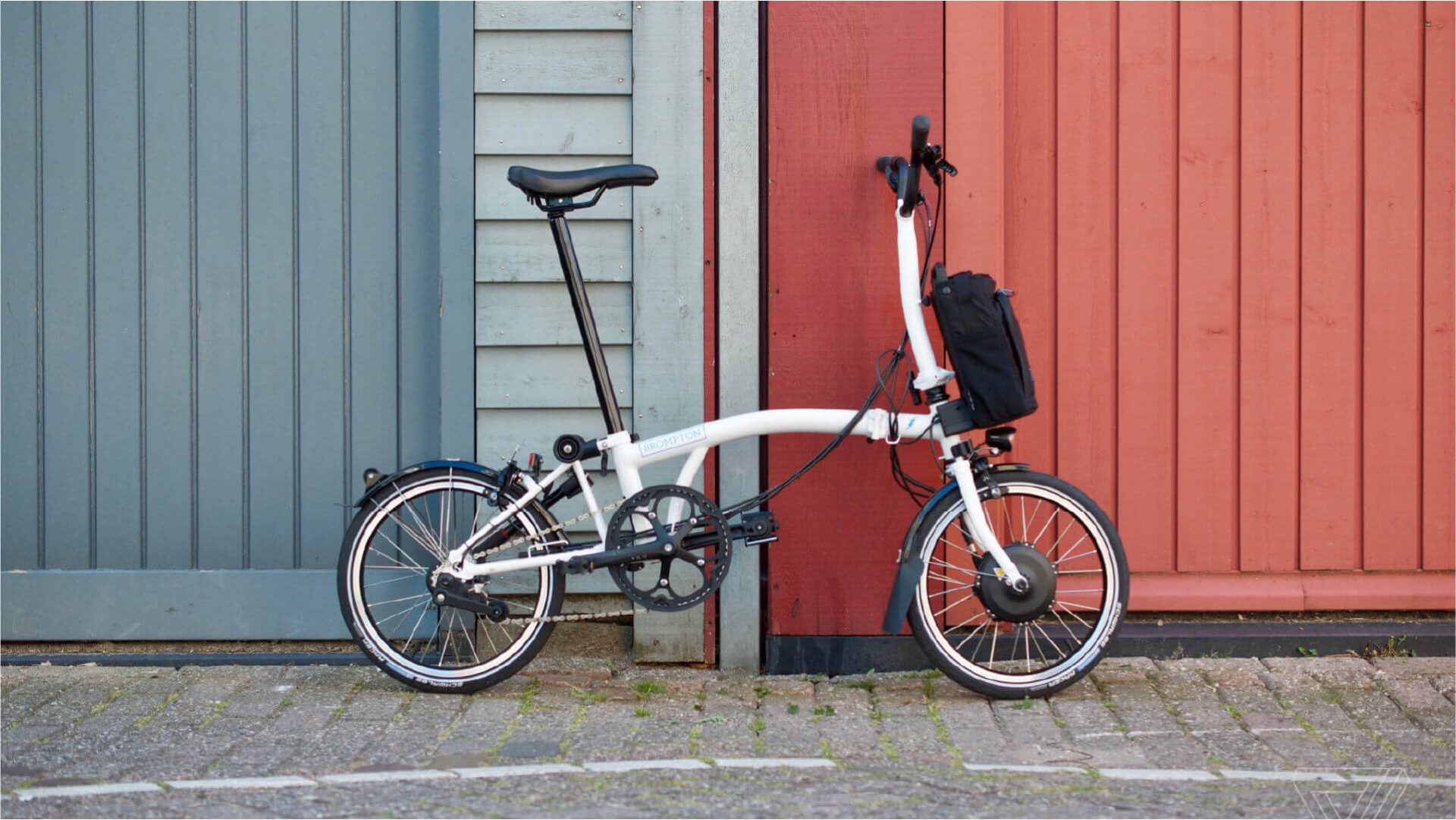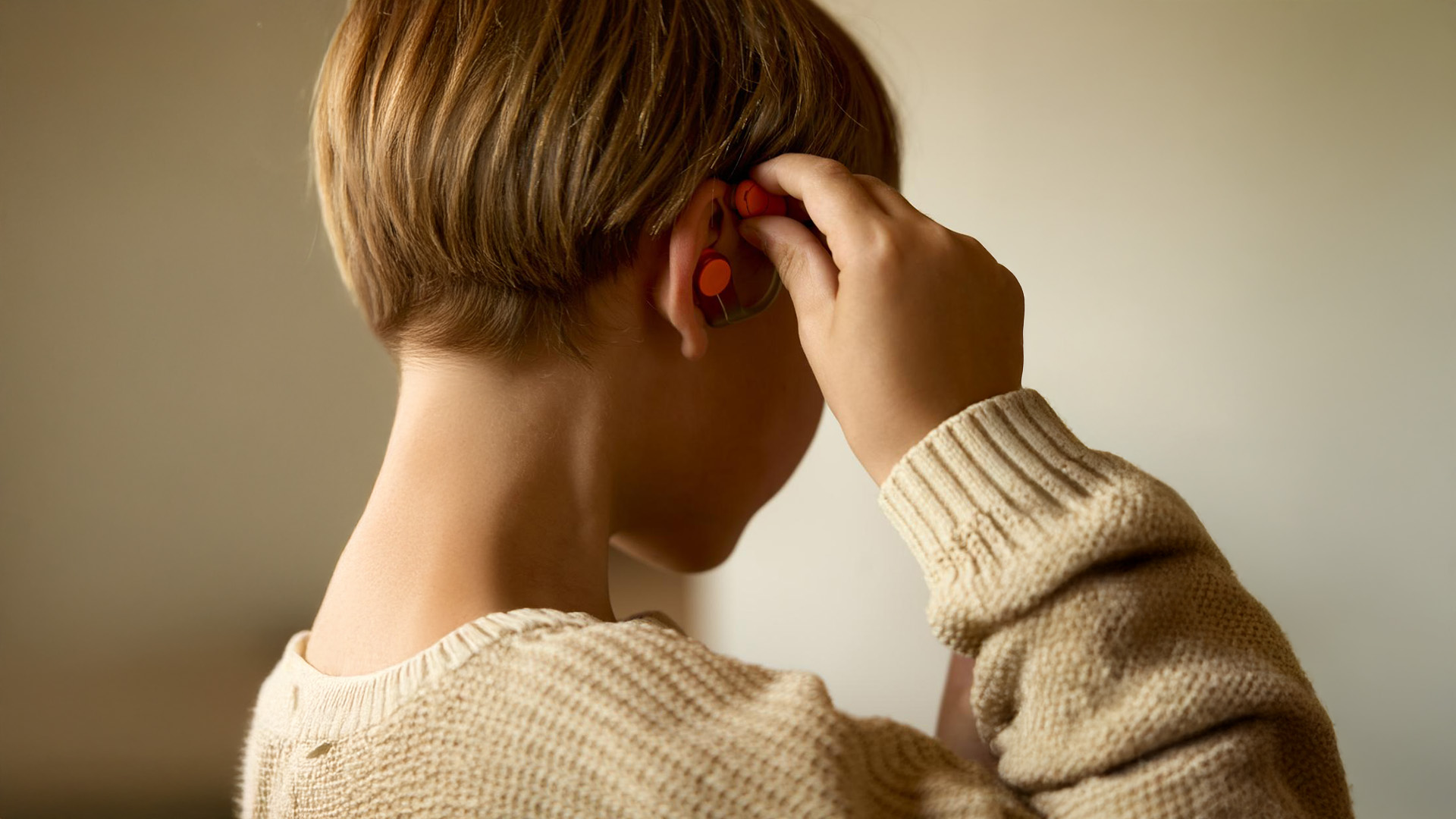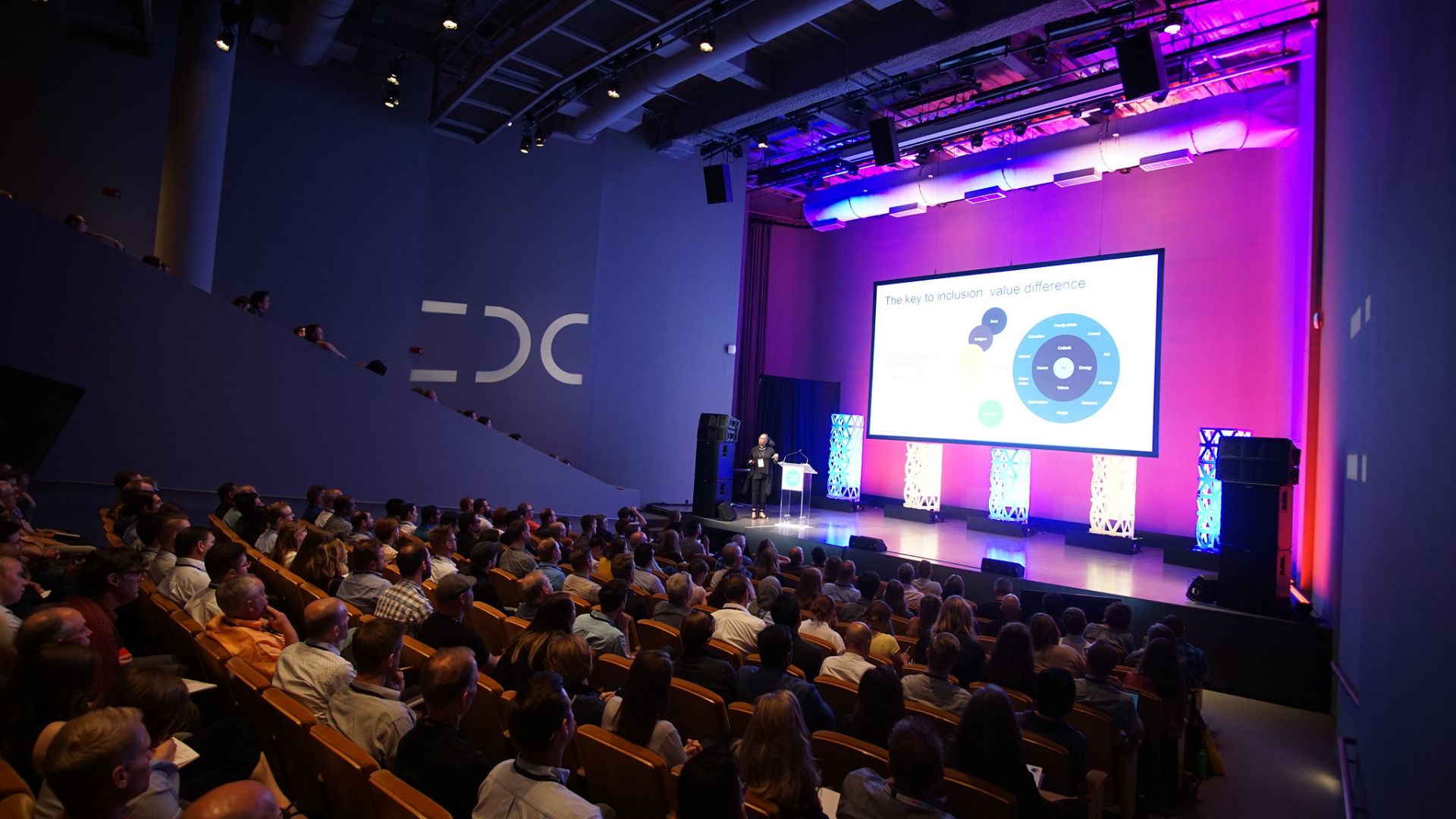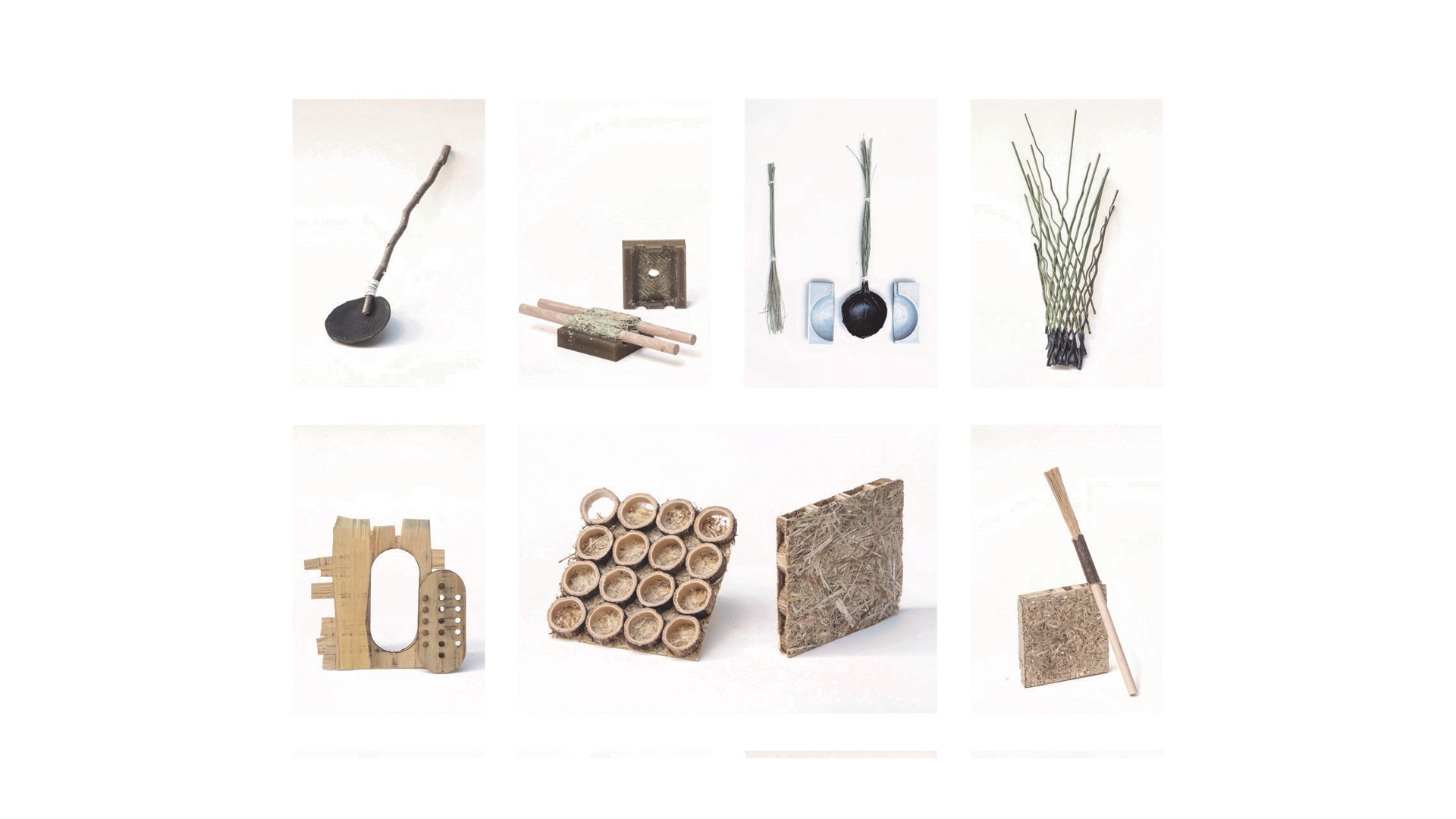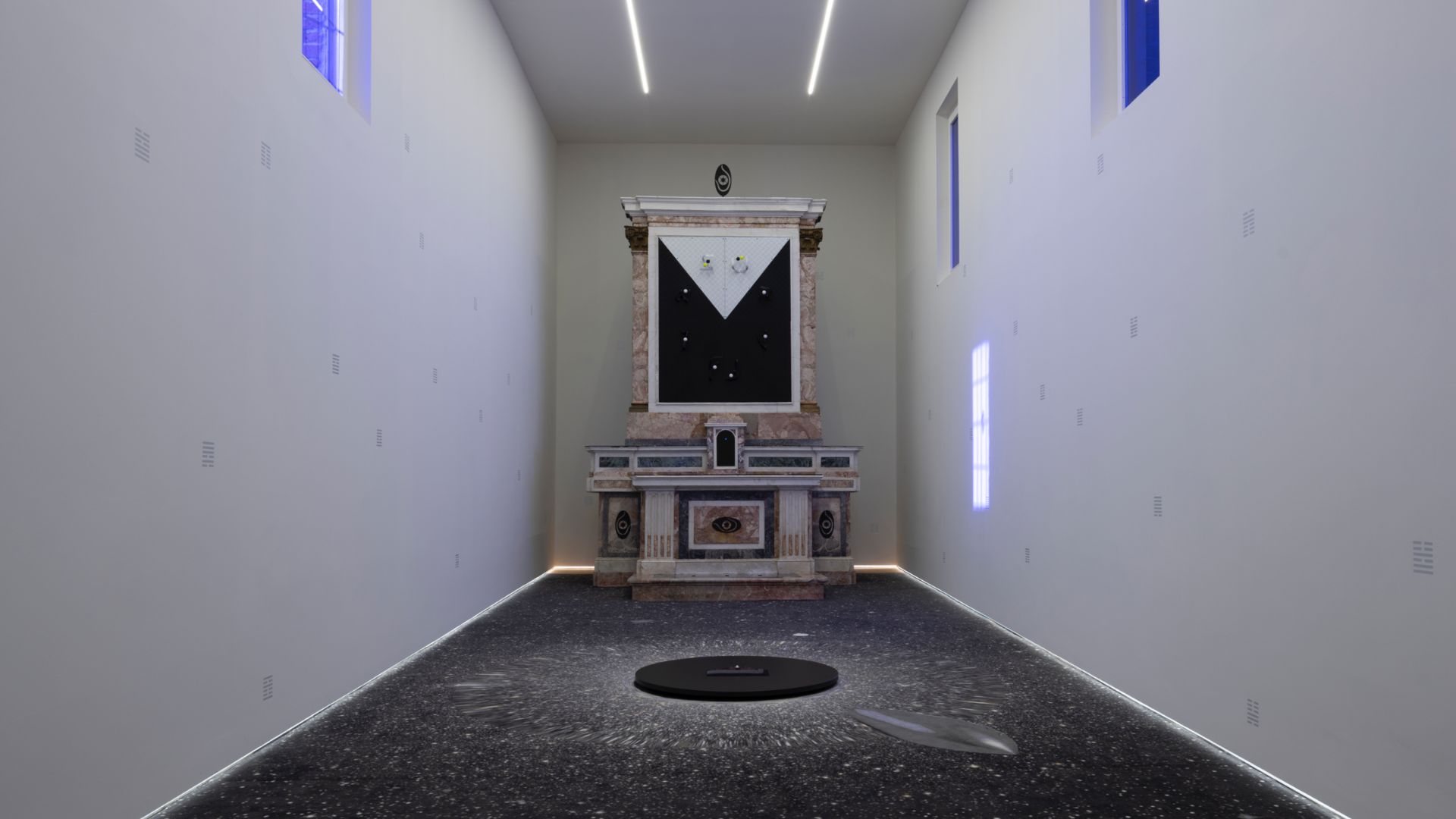With La Cucina Zero, domesticity is a genuine extension of the self
The first rendition of Oikos’s La Cucina Zero, designed by Debonademeo Studio, is a testament to just how empowering the notion of hyper-customization of the kitchen space can be–with sustainability at the core.
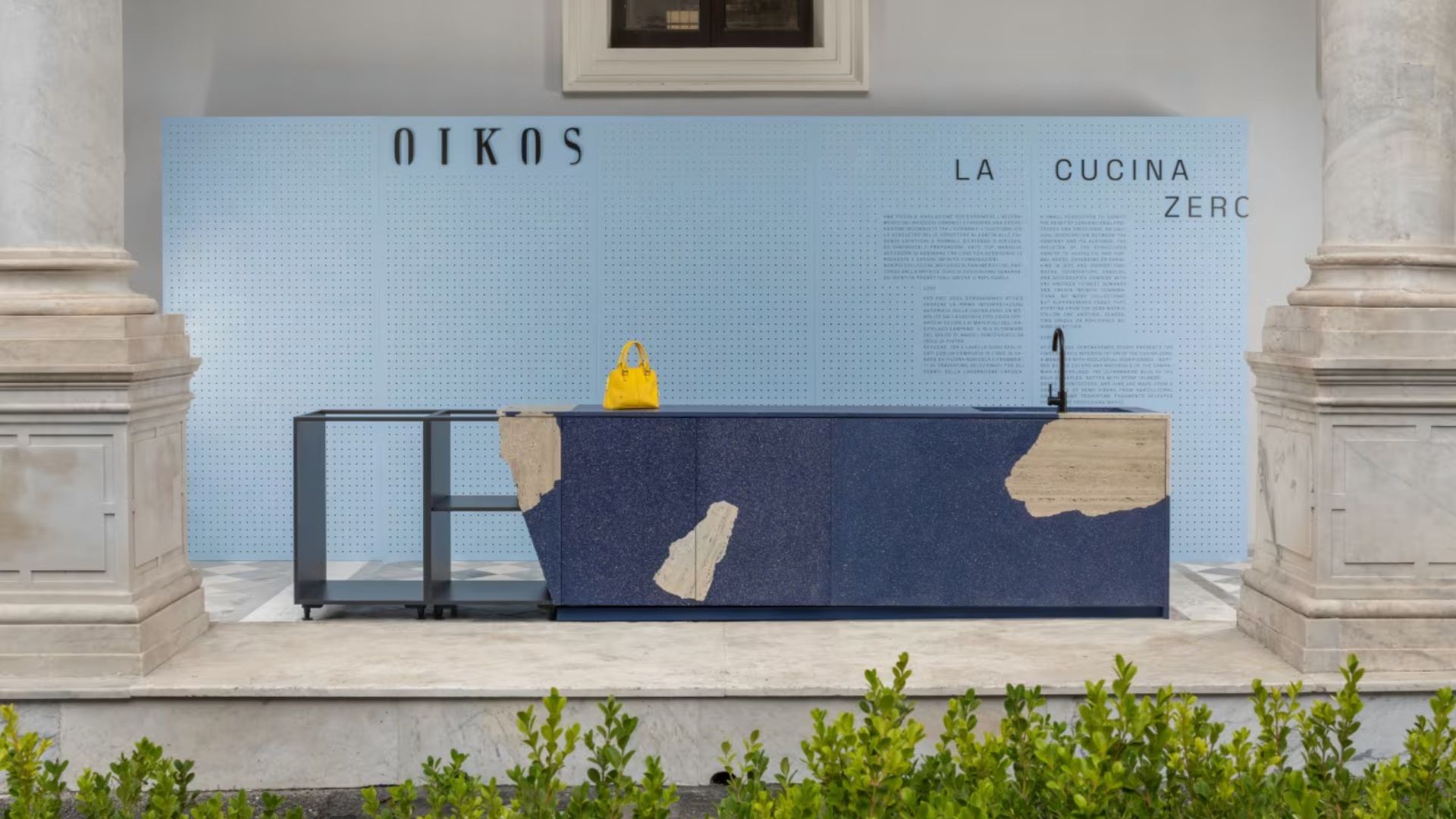
Starting from scratch can be daunting. But when channeled into the creation of a truly unique kitchen, one of the most intimate and important environments in our lives, the endeavor becomes unquestionably worthwhile. Renowned Italian interior company Oikos has introduced La Cucina Zero (the Zero Kitchen), which offers complete personalization of the kitchen space in a bid to fight the constraints that come with catalogs and ready-made collections.
Originating from the simplification of both function and aesthetics, La Cucina Zero comes with the Oikos “Abecedarium” (Alphabet book)–a curation of usable materials, colors, and finishings, as well as a wide variety of intuitive single components. Debonademeo Studio’s monolithic island mock-up is the first interpretation of La Cucina Zero. Using an innovative, 100% recycled and recyclable material exclusively made for Oikos, it was showcased during the sixth edition of the editorial and authorial design fair EDIT Napoli back in October of this year.
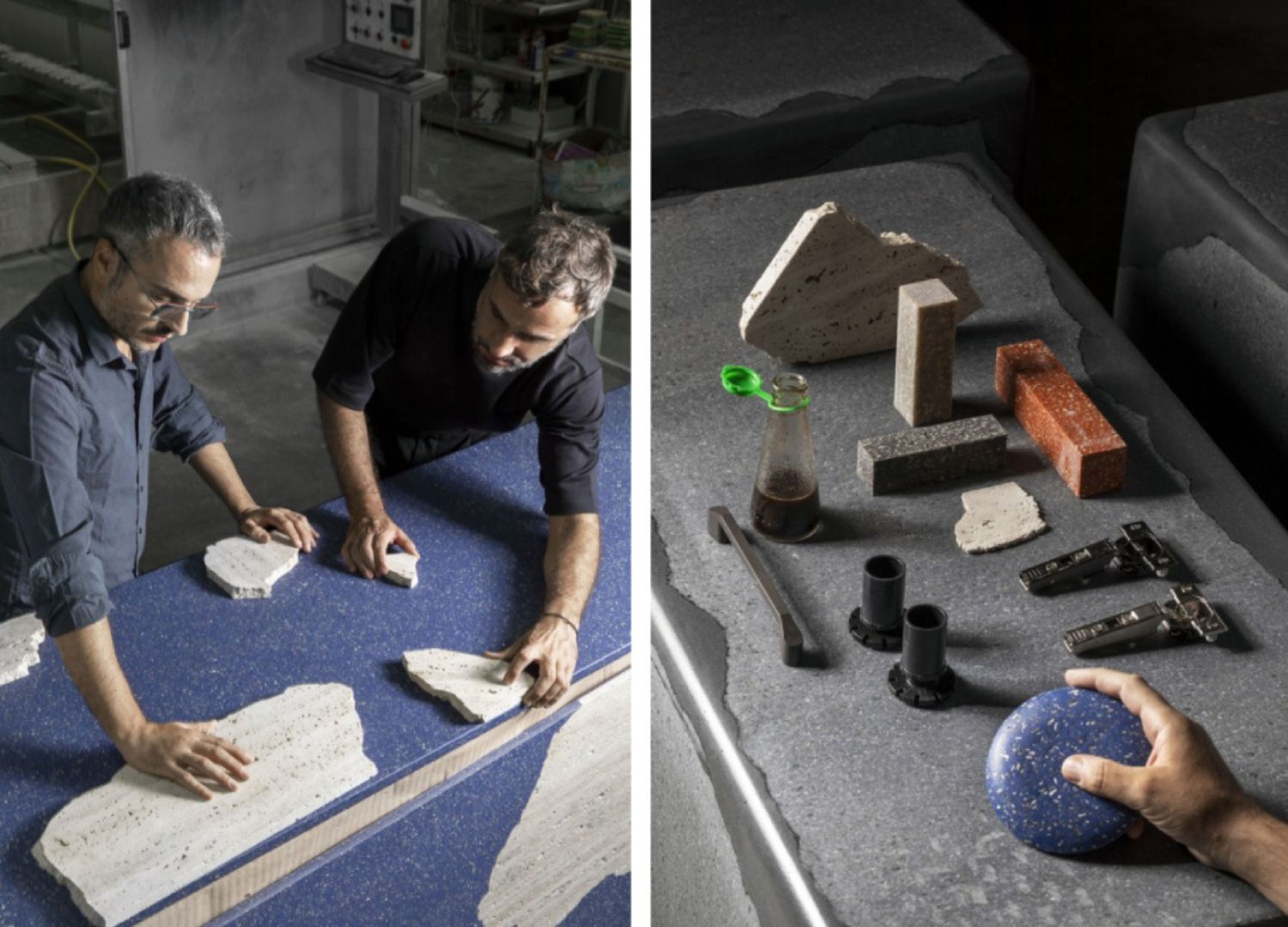
Operating in the Marche region, Oikos was founded over three decades ago. They have successfully built an extensive network of skilled artisans and reliable suppliers. Rewriting the playbook on kitchen design is intrinsically connected to their constant search for new materials, inspirations, and techniques. The center of La Cucina Zero is an open process: beginning with a matrix frame, adaptable to multiple dimensional requirements, and then covering it in materials and colors that match the needs and tastes of each customer.
Based between Padua and Milan, Luca De Bona and Dario De Meo founded Debonademeo Studio in 2010. Each of their realized projects so far conveys a distinguishable blend of past and present. It is their desire to enliven and enrich modern interior design by adding expressive value that made the customization of La Cucina Zero an exciting prospect.

edition of EDIT Napoli. – © Eller Studio
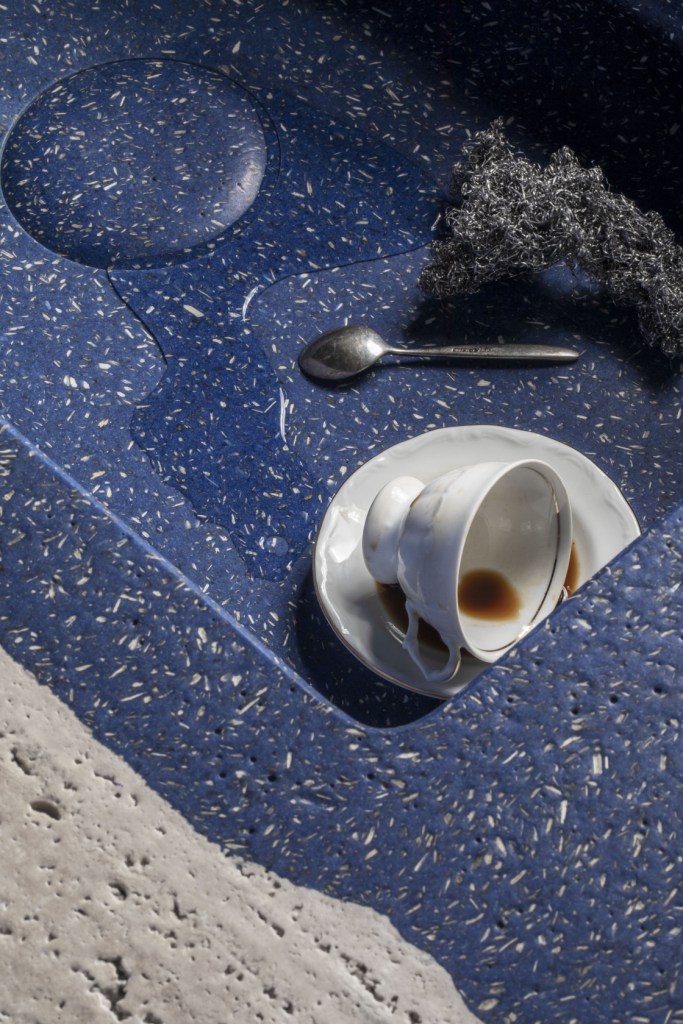
At the base level, all of La Cucina Zero’s layers share a nucleus of profound flexibility: each mutually independent component is modular. This allows for every variation of La Cucina Zero to be expandable in terms of additional elements, features, and chosen colors, thus always forming a one-of-a-kind interior and exterior.
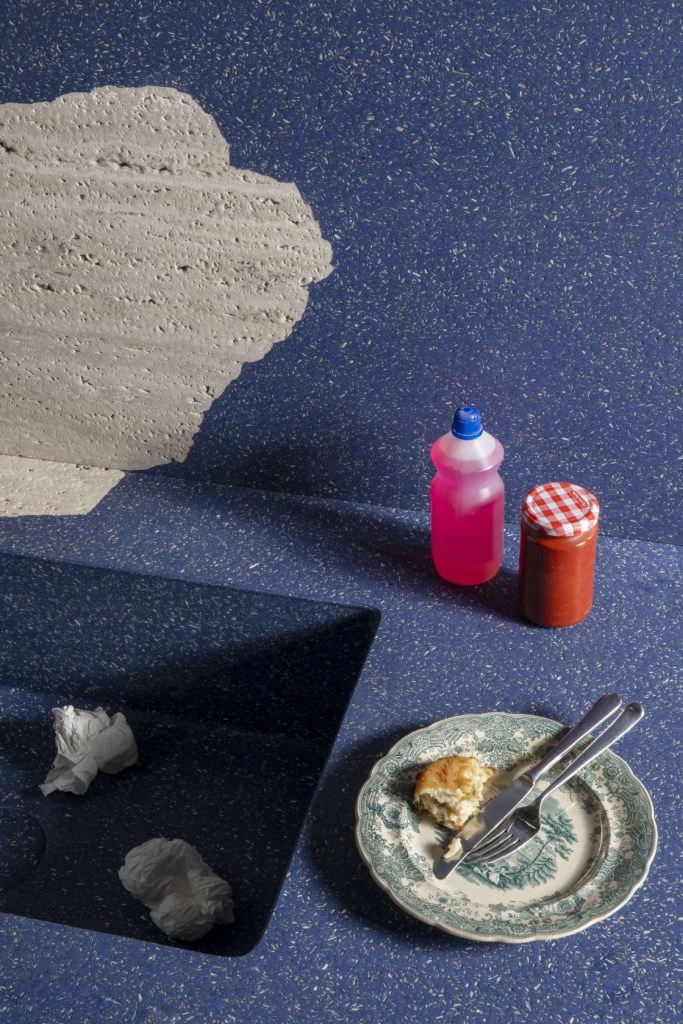
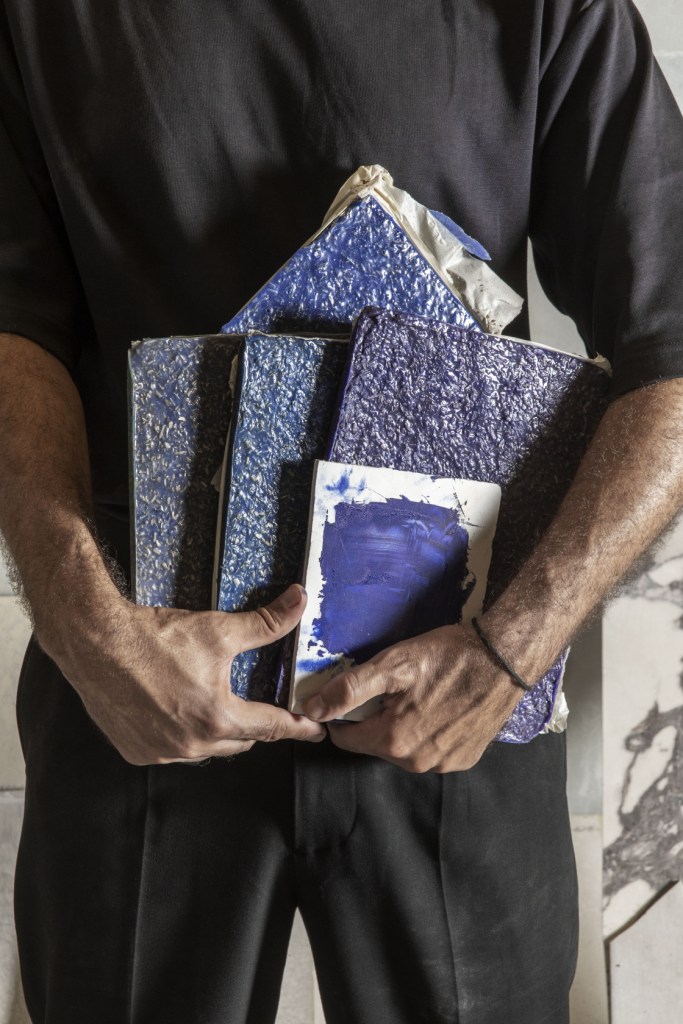
100% sustainable and available in different colors. – © Eller Studio
The innovative composite material used for Debonademeo Studio’s conceptualization–including the front, kitchen top, and kitchen sink–is completely sustainable. Available in five colors, the one presented at EDIT Napoli visually gives off a sense of tranquility (with a touch of playful turbulence). It was inspired by the Campanian Archipelago and is reminiscent of terrazzo floors. The material comprises hemp fibers and travertine fragments, recovered from production waste, solvent-free resins, and is VOC-free. It has high tensile, compressive, impact, and flexural strength and is resistant to abrasion, acids, and fire. The material can be fed back into the process once it’s no longer used, in this way greatly reducing overall environmental impact and helping mitigate waste.
Every story is, to some extent, an extension of the inner world of its author. Fundamentally, La Cucina Zero is immeasurably linked to storytelling and the abundance that comes with it. By granting full autonomy to its customers and the interior designers they choose to collaborate with, this revolutionary concept gives the needed resources for every vision of domestic bliss to come to life.


